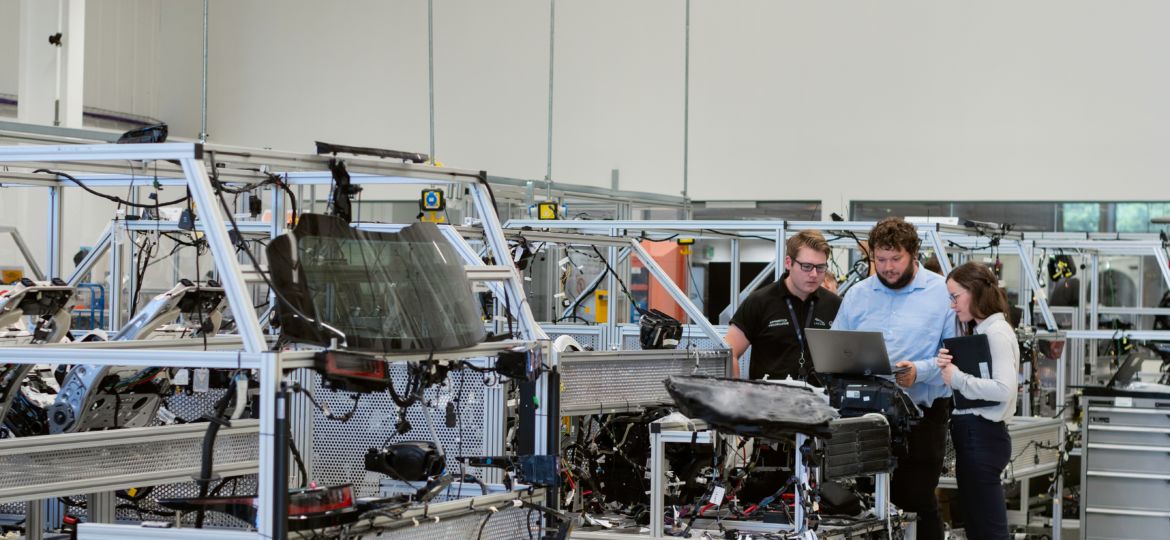
Press release
EU project makes headway in zero-defect manufacturing
- EU funded project introduces new Artificial Intelligence (AI) methods for improved quality in manufacturing
- The OPTIMAI project presents intelligent approach to zero-defect manufacturing through its breakthrough AI powered toolkit
- 16 partner organisations from 8 countries across Europe join forces to optimise production processes through a mix of AI, augmented reality, virtualisation and smart sensors
27th January 2022
Manufacturing industries are constantly looking for new ways to improve quality control for both manufactured products and manufacturing processes. The OPTIMAI project is spearheading innovation in this area. Introducing new technologies designed to reduce scrap, eliminate defects, maximise productivity and improve quality of shop floor processes, the project is set to make a tangible impact on European industry and environmental sustainability.
“We are effectively looking to create a new industry ecosystem. We are optimising production processes through a unique mix of Smart Instrumentation, Metrology, Artificial Intelligence, Virtualisation and Augmented Reality”, says OPTIMAI Project Coordinator, Dr. Nikolaos Dimitriou from the Centre for Research and Technology Hellas (CERTH-ITI).
The three-year project, funded by the European Commission’s Horizon 2020 research and innovation programme, is shaping the factories of the future thanks to its unique set of smart technology designed for the manufacturing arena. OPTIMAI was launched in January 2021 and has just entered its second year.
The manufacturing industry has spent the last few decades in a continuous state of technological revolution with the progressive introduction of ICT, robotics, and automation technologies and most recently the introduction of digitalisation technologies on the shop floor. OPTIMAI is now revolutionising current industry practices further by bringing together and advancing several enabling technologies that strengthen the collaboration between humans and machines.
Dr. Dimitriou and his team have designed the OPTIMAI toolkit, which will initially be tested and validated in factories focusing on the manufacturing of lifts and antennas and on the assembly of microelectronics in Greece, Spain and the UK respectively. The highly adaptable solutions will then be applied in a wide range of industrial settings and brought to market across Europe.
“We aim to strike an optimal balance between fast, cheap and reliable production choices that have a significant impact on industrial competitiveness.”, Dr. Dimitriou explains.
Core parts of the toolkit developed by contributing organisations include a decision support system that detects and issues early notifications of defects, a continuous production, monitoring and quality inspection system powered by smart sensors, an intelligent marketplace for recycling of scrap, digital twins for simulation and forecasting of industrial processes, and, of course, a comprehensive ethics and regulatory framework surrounding the technologies.
Feeding into the current transformative phase in the Industrial Revolution known as Industry 4.0., the project’s innovations go beyond the state of the art and pave the way for a smarter, digitalised European manufacturing domain.
Photo: ThisisEngineering RAEng via Unsplash

